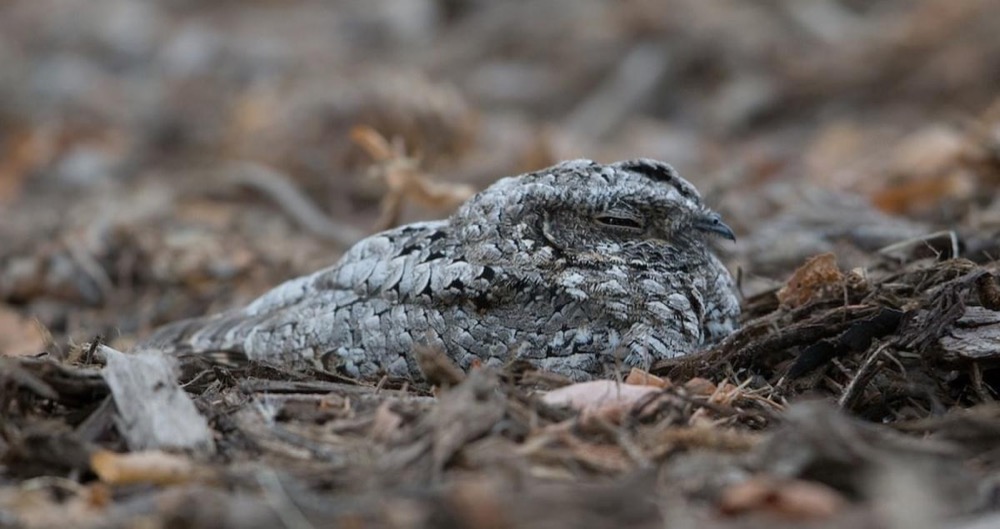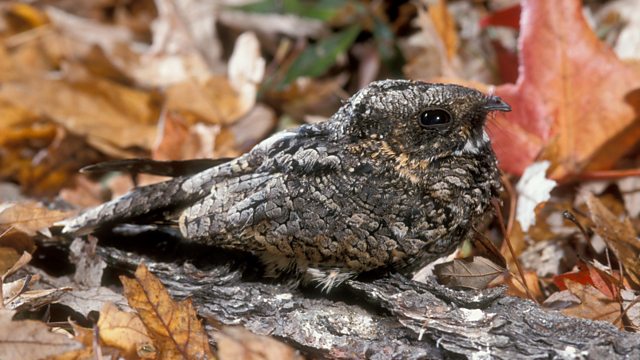 The Cornell Lab of Ornithology – Common Poorwill (Phalaenoptilus nuttallii)
The Cornell Lab of Ornithology – Common Poorwill (Phalaenoptilus nuttallii)The Common Poorwill (Phalaenoptilus nuttallii) is part of the Caprimulgidae family, also known as nightjars. Nightjars are characterized by their long wings, very short bills and tendency to be nocturnal. This species is the smallest member of the nightjars in North America, typically ranging 7 - 8 inches (18 - 21 centimeters).
What makes this species exceptional among other birds is its ability to enter a hibernation-like state, known as torpor, during cold weather – when its food source, insects, are primarily not available. The Common Poorwill can slow down its metabolic rate and drop its body temperature for several weeks at a time. Although it is not characterized as a true hibernation, this torpor state allows the bird to go for long periods of time without food. This hibernation state has also been recorded in the laboratory when the animal is deprived of food for a set amount of time despite the set ambient temperature.
 The Cornell Lab of Ornithology – Common Poorwill (Phalaenoptilus nuttallii)
The Cornell Lab of Ornithology – Common Poorwill (Phalaenoptilus nuttallii)The Common Poorwill is typically found in dry, open shrubby areas ranging throughout southwest North America hunting for night-flying insects and often nests on the ground. Thus, Ranger Bonnie Phillips’ interaction with the Common Poorwill as night fell over Cabrillo National Monument was distinctive of its usual behavior and distribution. But exclusive nonetheless as Cabrillo National Monument is closed during the night hours. Learn more about the Common Poorwill from The Cornell Lab of Ornithology.
Sources: www.allaboutbirds.org/guide/Common_Poorwill
